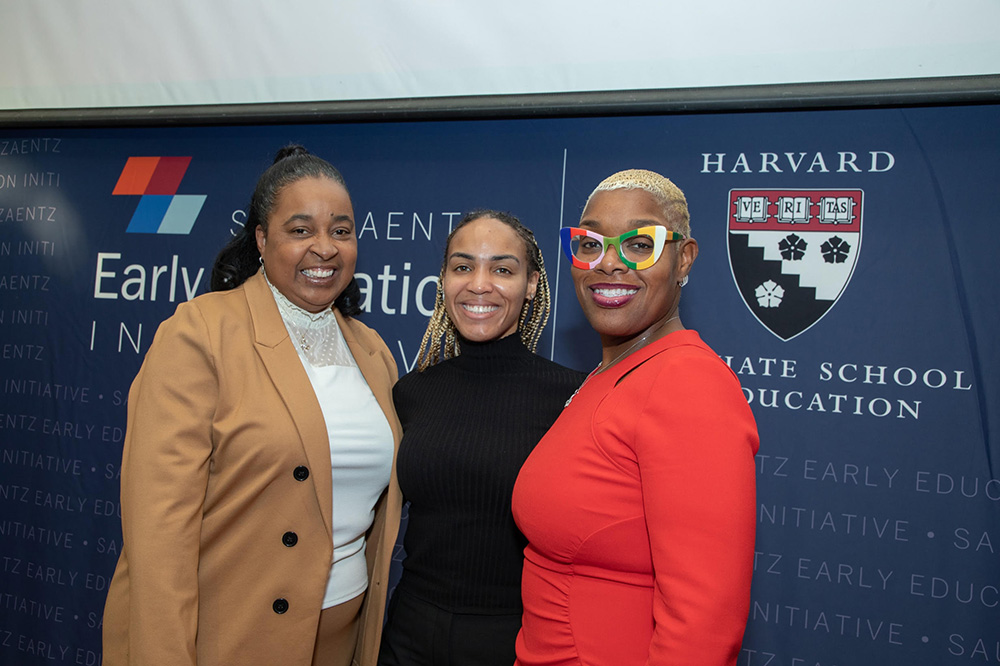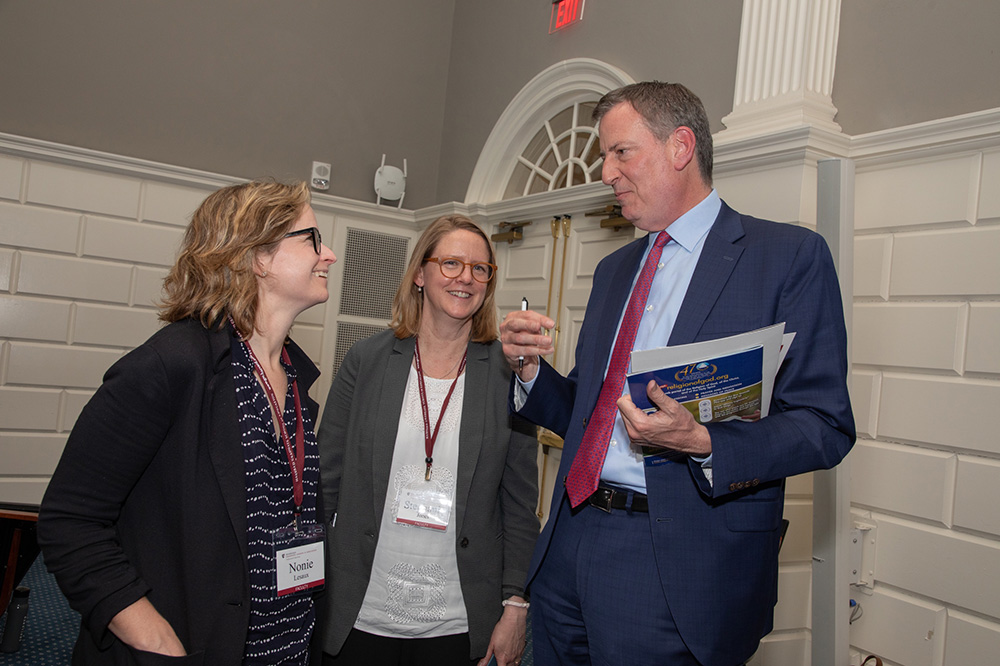In 1999, addressing AmeriCorps members on the program’s fifth anniversary, President Bill Clinton said, “There is no question that you are now an indispensable force for change in America.” The same year, when Kristi Givens went into the child care profession, she didn’t know she would someday cross paths with the national service program. The proprietor of three child care centers in New Orleans’ Ninth Ward, Givens is cofounder with Rochelle Wilcox—a child care center owner and co-chair of Geaux Far—of For Providers by Providers (4PXP), a new force unleashing the power of care in Louisiana.
What’s the significance of the name? “For too long,” she says, “Other people have been making decisions on what should be done for us. And we decided: No more. From now on, we’re the ones going to the federal, state or city government to speak on our own behalf about what we should be paid and what things like quality and professional development should be.”

Along with 4PXP Executive Director Laneir Landry, Givens and Wilcox have developed the Early Learning Teacher Corps, a demonstration project that is bringing 50 AmeriCorps members into the New Orleans early learning ecosystem as teacher’s assistants in classrooms serving newborns up to three-year-olds. “Don’t underestimate us,” warns Givens. “Give us three years and we’ll be up to a thousand teachers.”
The project recently claimed the $10,000 first prize and the $1000 audience choice award in the Envision Track at the Saul Zaentz Early Education Innovation Challenge, which is run out of the Harvard Graduate School of Education. (Watch all the pitches here.)
“We are trying to change the way child care is done,” says Givens, acknowledging that Louisiana’s early learning landscape, which never fully recovered from Hurricane Katrina in 2005, underwent a slow-motion crisis during the pandemic. Half of all lead teachers have left the field altogether. Wages are cited as the primary issue, though a report by Advancing Communities for Equity also underscores feelings of being disrespected as a reason for finding other work.
👉 The Early Childhood Workforce in Lafayette, La. Wants Pay, Benefits and R-E-S-P-E-C-T
Wilcox says, “We knew we couldn’t depend on what we currently have. We had to build a pipeline, and that means finding nontraditional workers.” They designed the initiative to engage college graduates as well as career changers and parents.
Orleans Parish, notes Wilcox, recently passed a millage that is set to generate $21 million for early education each year for the next 20 years. “We estimate that we’ll need more than 800 new teachers to educate all the children coming into the system,” she says. “And we don’t want just warm bodies. We want to make sure that they are getting training. It’s just not about having the textbook, the work, the academic knowledge. You have to have the applied practice, too.” On top of all that, cultural understanding is highly desirable in communities that have endured decades of disinvestment, neglect and systemic racism.
👉 New Orleans Coalition Pushes for Child Care Measure with Multigenerational Effect
Thanks to a partnership with New Orleans Public Schools, the common application for children now asks parents if they’re interested in working in early care and education; 1100 respondents have indicated interest already. Landry says the program will not only expand the workforce and retain them but also lead to better outcomes for children. “Each of those 50 AmeriCorps members,” she says, “is going to have directly served 45 children working specifically on literacy learning and math skills.”
“This is really about the story about what high-quality early care and education means,” adds Wilcox.
👉 Voices and Visions for Transformative Change from Child Care NEXT
Professor Nonie Lesaux, co-director of the Saul Zaentz Early Education Initiative, says the Zaentz Innovation Challenge was set up “to surface the amazing work out there. We had all of the finalists come to campus and pitch before a panel of judges. We were open to a range of innovations, all the way from workforce, to an app for direct use by caregivers, to an app for children, all the way up to a policy strategy.”

Bill de Blasio, former mayor of New York City and current visiting fellow at the Saul Zaentz Early Education Initiative, acted as emcee and described his work to expand pre-K in the Big Apple, stressing early education as an issue that involves racial, gender and economic equity.
The partnership, Givens and Wilcox explained to the judges, builds upon AmeriCorps’s Jumpstart program, which places over 2,000 corps members per year in preschools around the country. Corps members will spend about 25 hours a week in the classrooms, working with an exemplary teacher. They’ll study early childhood and work with coaches on a weekly basis. The positions will pay a livable wage and come with health insurance.
One of the five judges at the event was Mora Segal, managing director of the education investor A-Street Ventures. She happens to be the daughter of Eli Segal, first CEO of AmeriCorps. As Wilcox recalls, she approached after the 4PXP pitch and said, “This warms my heart that my father’s legacy can be continued in this way.”
Over time, 4PXP hopes to expand its workforce innovations on a national scale.

Mark Swartz
Mark Swartz writes about efforts to improve early care and education as well as developments in the U.S. care economy. He lives in Maryland.



